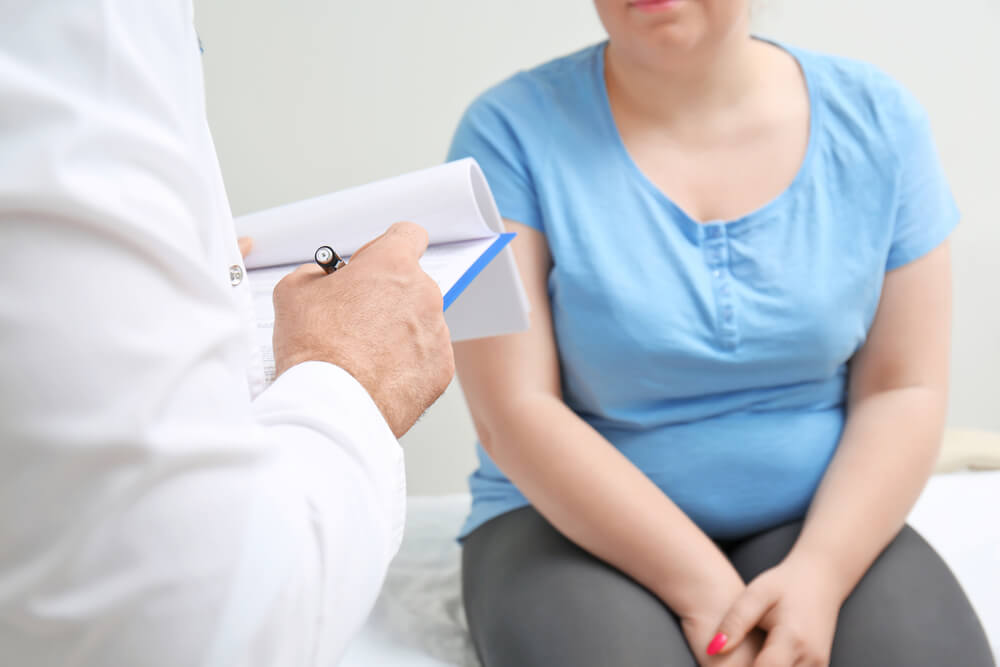You may have heard that a body mass index in the range of obesity or overweight can affect ovulation and may impair one’s fertility.
As a matter of fact, carrying excess weight might make you feel frustrated, as months will pass without a single pregnancy test, and anxiety may grow. In fact, the problem may be the link between fertility and weight. Fortunately, in this article, the expert team at ACE OBGYN will give more insight into this topic and discuss a few positive changes that can get you to a healthy weight to get pregnant.
Can Obesity Cause Infertility?
While we can’t say that being overweight or obese can make someone infertile, all medical experts agree that losing at least some excess weight (even ten pounds) can make a significant difference and get you to a healthy weight to get pregnant. That said, there is a connection between fertility and weight, and there are a few steps you can take to improve your chances.
So, does weight affect fertility? In short, being obese or significantly overweight may make getting pregnant more challenging.
As experts state, the connections between hormonal balances that trigger ovulation are complex and fat cells can often lead to more estrogen production, which can actually work hinder the success of the body’s attempt at ovulation.
So, how does weight affect fertility? Excess weight, specifically obesity, can cause hormonal disbalances that can disrupt the body’s reproductive health, making it harder to get pregnant.
Still, it’s important to remember that hormone levels that aren’t in balance will cause problems with getting pregnant directly; some women may ovulate less or have irregular cycles, making conception more challenging.

Fertility and Weight: Does The Location of the Extra Weight Matter?
Central obesity, characterized by excess weight around the abdomen, is commonly associated with an increased risk of ovulation difficulties and diabetes, potentially affecting fertility. If you have an “apple-shaped” body, with most of your weight concentrated in the stomach area, it indicates central obesity.
On the other hand, individuals who carry weight more evenly or in their lower extremities and buttocks tend to have a slightly lower risk.
To that end, experts will usually point out that genetics may influence body type, while central obesity often stems from lifestyle choices and habits.
Healthy Weight To Get Pregnant
Before getting into the specifics, we must first understand how BMI works and how medical experts use it.
Physicians utilize body mass index, commonly known as BMI, to assess whether an individual is overweight or obese. BMI takes into account height and weight to estimate body fat percentage. Simplifying the process, a BMI falling between 25 and 30 indicates overweight, while a BMI exceeding 30 indicates obesity. While discussions surrounding BMI are more intricate regarding fertility planning, BMI is a practical initial reference point.
With that in mind, experts usually agree that before and during pregnancy, women who want to conceive before and during pregnancy should optimize their health and aim for a BMI below 25. Still, this is only a ballpark figure, as a healthy pregnancy BMI will differ slightly for everyone.
Why? Even in the ideal BMI range, some women may experience the same hormonal disruptions that cause irregular ovulation. On the other hand, other women may be technically obese but still ovulate every month and have regular periods without any hormonal imbalances.
How Much Weight Should You Lose?
As hinted above, this is a rather complex issue, and different factors are involved in conception and weight loss. And while there’s no magic formula, medical experts agree that losing at least ten pounds is always a great way to get started.
Still, you can reach your goal by focusing on healthy choices. Most of the time, even minor differences can significantly impact you in the long run, helping you with regular ovulation.
Best Ways To Lose Weight and Increase Fertility
For the most part, every healthcare professional will say that women need to focus on balancing their diet before trying to get pregnant. Still, the key here is to make the changes, not the conception itself. That can lead to problems with stress and anxiety which may further hinder the chances of actually getting pregnant.
Making Healthy Changes To Your Diet
To lose weight, you don’t have to change your diet radically. Even small tweaks like reading food labels more carefully can make a change. Also, focus on avoiding heavily processed foods and raw sugars. You should focus on whole and natural foods comprising vitamins, minerals, complex carbohydrates, and protein. The latter should come from lean sources such as poultry, while carbs can be attained from whole grains and beans.
Also, avoid fad diets, quick fixes, and starving yourself. Yo-yo dieting may do even more damage to your body, and it probably won’t help you with conceiving. Shifting to healthier food choices and habits might yield slower effects, but they will be more sustainable.
Focus On Exercise You Enjoy
Apart from cleaning up your diet, you can also consider starting an exercise program to improve your results and chances of getting pregnant.
If you are new to exercise, exploring and discovering an activity that genuinely brings you joy is beneficial. This will assist in building and sustaining momentum. Focus on establishing an exercise routine that incorporates essential components such as a warm-up, a conditioning phase, and a cool-down phase.
Reach out For Help If You Need To
Shifting to these healthy lifestyle habits can be difficult. Staying motivated to exercise and opt for more nutritious meals requires focus and willingness, and this can be pretty overwhelming, especially if you are doing it all alone.
That said, you can always ask for help from an expert nutritionist or doctor. Both of them can help with creating a sustainable exercise and diet plan. You may also get your partner onboard. You can plan out your meals together or even work out together.

Opt for Medications
On the other hand, you can always ask your doctor about compounds such as metformin, which is often prescribed for women who have diabetes and aren’t ovulating.
Still, experts say it may help, but it’s not a magical drug. Doctors still encourage reaching a healthy body weight, which is much better payoff. Reaching a healthy weight won’t only improve the chances of getting pregnant but will also lower the risk of many potential health issues.
Underweight Pregnancy and Fertility
On the other hand, being underweight or having a body mass index under 18.5 may also lead to hormone imbalances. These disruptions may also affect ovulation, making becoming pregnant more difficult for underweight women. That said, achieving an “underweight pregnancy” may be just as challenging for skinny females as for overweight women. As such, they are also encouraged to work with a nutritionist, doctor, or dietitian but to put on more weight.
If You Need Help
Reaching a healthy weight if trying to conceive is pivotal for a healthy and successful pregnancy. At the beginning of this journey, the necessary lifestyle changes may seem confusing and overwhelming. Still, with the guidance of a trained, compassionate, and experienced professional, the transition can be achieved smoothly.
That said if you want to learn more about healthy diet plans and exercises, schedule an appointment with us today.

